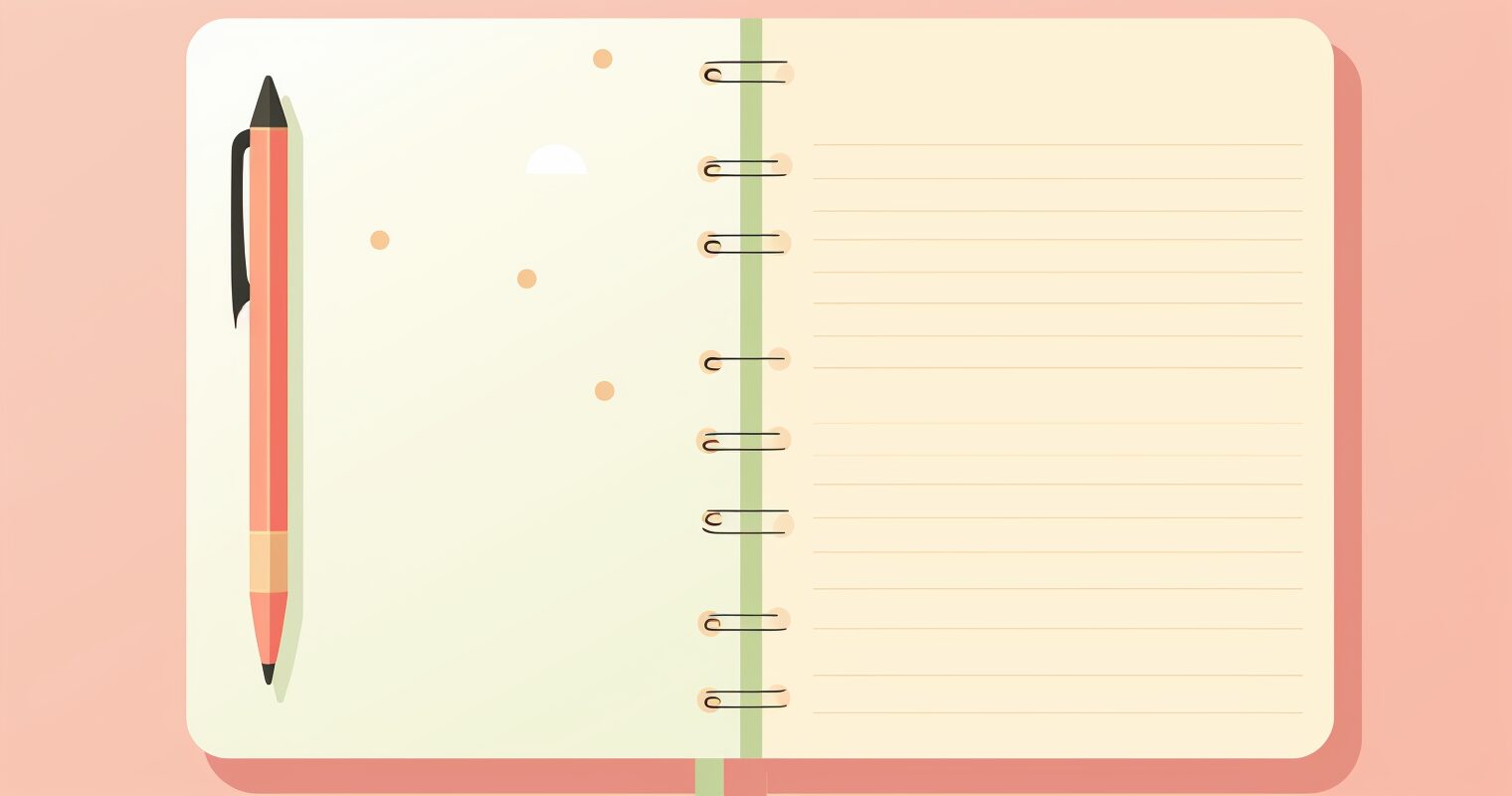Life • 01/25/2024
Build Healthy Financial Habits With a Budget Journal

Revivalist is a reader-supported endeavor and our posts may contain affiliate links. When you buy through links on our site, we may earn an affiliate commission.
When it comes to managing your finances, there’s no one-size-fits-all all solution. But there is one simple yet powerful tool that can help you take control of your spending, save money and build healthy financial habits. Enter budget journalling, the practice of tracking your income and expenses in a dedicated notebook so you can see where your money is going and how you want to allocate it.
Why Everyone Needs a Budget

Budgets allow you to manage your money more effectively by putting funds into specific accounts or categories. They help ensure that you make ends meet every month while enabling you to set money aside for other goals.
A budget is a way to hold yourself accountable got your spending choices and identify areas where you can cut back to reach your financial goals.
What You Can Do With a Budget Journal
Every budget journal looks different. You should look for a journal that allows you to list necessary categories and see your spending at a glance. Budget journaling will let you see how your spending stacks up over a certain period, and you can adjust your purchases and set new savings goals as needed. Here’s how a budget journal can help:
1. Keep Track of Your Monthly Spending
A budget journal can help you keep track of your fixed expenses, like your rent or insurance payments, and any other expenses you have throughout the measured period. It’ll give you a better idea of what you’re spending monthly, weekly or daily so you can formulate a plan to help you tackle unnecessary spending or fast-track goals.
2. Set a New Financial Goal
Once you see where you can cut back on spending, you may also notice that you can save money for a goal you want to achieve. The most popular finance goals often revolve around a good savings fund and decreasing credit card debt, which can leave you more financially secure than you were in the past. You may want to save for a down payment on a house or move into a nicer area. Or building a bulletproof emergency fund that can keep you afloat for six weeks if you have a sudden income dip or increased expenses. Whatever your goal is, your journal can help you achieve it.
3. Feel More Responsible
Overall, having a journal for budgeting and keeping track of your finances can help you feel more responsible. One of the most challenging parts of adulthood is managing so many tasks and responsibilities at once. With your journal, you can craft a budget that works for you and leaves enough room for the spending and saving you want.
Best Budget Journals to Try
1. Clever Fox Budget Planner
This is one of the best budget journals out there, thanks to its simple layout and all-inclusive monthly page that lets you compare your planned budget and actual spending. It also has a checklist for important payments and a space to write your monthly goals. It has a bullet-journalesque page to write your ideas and notes and space for a monthly review with a pie chart to fill in. The stickers make for a colorful budgeting experience that will keep you interested in filling out the numbers and working towards your goals.
2. GoGirl Budget Book
This budget planner has 9 different setups to help you plan your yearly budget. You get pages for your monthly plan and budget, an expense tracker, bills and expenses tracker, a savings tracker and a debt tracker. You also get goal-related pages like a monthly budget review with space for ideas and notes and a place to write your top 7 financial goals. Best of all, there’s a page dedicated to holiday expenses so you’re never surprised. If you’re interested in cash-stuffing, it comes with 3 cash envelopes and an inner pocket to keep receipts and other records.
3. Freedom Mastery Wealth Planner
This Budget Journal is 271 pages of inspirational budgeting that will help you you grow wealth and reach your goals. In addition to the regular monthly and yearly planning, its special features include a Financial freedom road map, a vision board, declarations and affirmations and a guide on building food financial habits.
How to Create Your Own Budget Journal
If you’re already used to tracking some of your finances and goals with a bullet journal, you should know how to personalize a budget journal from the beginning. If not, all you need is enough free space to create a budget plan, then you can decorate it how you want. Here are some budget journal ideas to get you started.
1. Choose Your Setup
When you start your journal, decide on the “budget period.” Consider when you get paid. If you’re paid biweekly, you may want to have a budget period of two weeks. If you’re paid monthly, consider making a monthly budget list. You can use any period you want — just ensure you can adhere to a budget for a short or long time. Remember you can always adjust it later.
2. Figure Out Your Totals
Budget planning comes with knowing how much money flows in and out of your bank accounts over a designated period. This includes fixed expenses, like rent or mortgage and flexible expenses like groceries and gas. Other costs are often optional, like shopping for clothes or eating at restaurants. Your budget journal can help you map out all these categories and distribute your budget evenly among them.
3. Be Prepared to Track Purchases
You’ll need to stick to your budget and record everything honestly to reach your financial goals. If you really want to change any bad habits or build positive ones, it’s important to understand why you spend the way you do. It may be worth taking time to review every purchase and record your feelings about it.
4. Figure Out Your Goals
Would you like to pay off some debt? Save for a new house or buy that new couch you’ve had your eye on. Budgeting will help you reach each goal. But you have to write it down and plan for it. Make space for your dreams and goals in your journal, and write down a strategy for each. Also, allow yourself to be flexible with your categories for each new time period. What you’re able to save last month may be different this month. What’s important is making steps towards your financial goals.
Make the Best of Budget Journaling
You can get a budget with everything laid out or personalize your budget journal as much as you want. Make the process fun with stickers, notes and encouraging affirmations for yourself. While budgeting can be challenging, knowing you’re knocking your goals out is worth the discipline and effort. Your finances will thank you in the future as you work toward the goal of bettering your household budget.
Originally posted 2/20/2023 – Updated 1/25/2024
Subscribe to Our Weekly Newsletter
We would love to connect deeper with you!


